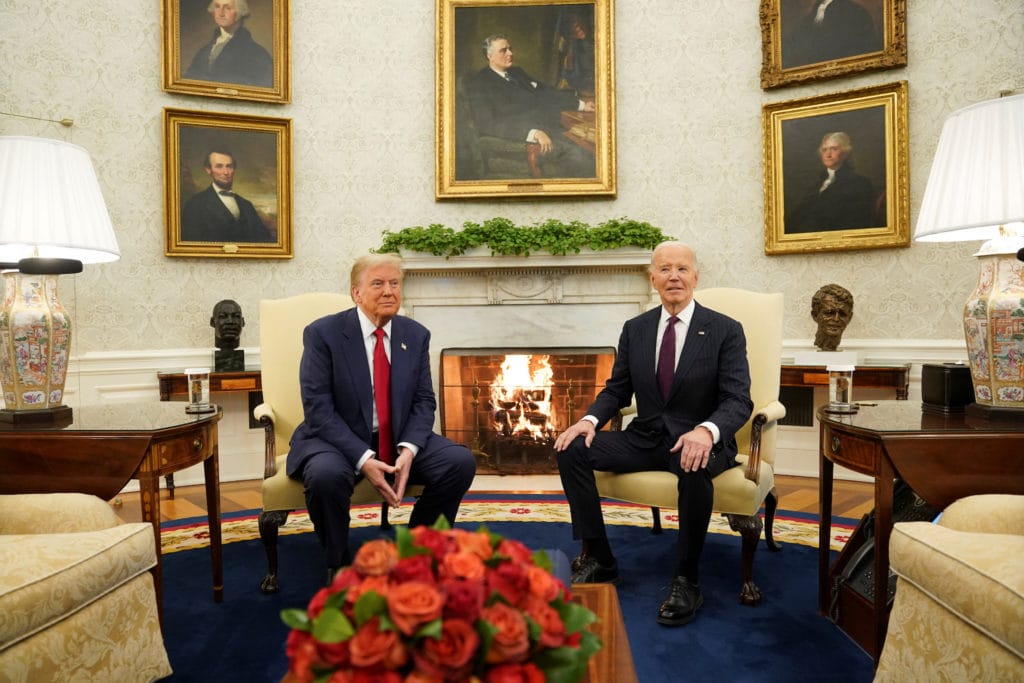Biden’s Final Chapter: A Push for Lasting Impact Amid Transition

As Donald Trump’s potential electoral victory becomes clearer, the Biden administration enters its final phase with a narrowing window to accomplish critical goals before the power transfer. A Trump win might spare the United States prolonged legal battles. Still, the months leading up to January are set to bring significant shifts in U.S. policy, especially concerning foreign aid, energy sanctions, and global diplomacy. For President Biden, this final stretch is a race against time, requiring a concentrated push on key priorities, most notably supporting Ukraine in its ongoing struggle against Russian aggression.
Ukraine Aid Tops the Agenda
One of President Biden’s most urgent tasks is leveraging the remaining $5.5 billion in presidential drawdown authority to deliver crucial financial and military aid to Ukraine. As Ukraine fights for its survival following Russia’s brutal invasion, U.S. assistance has played a pivotal role in bolstering its defenses. Air-defense systems, advanced battle tanks, and long-range artillery have been central to balancing the scales against Russia’s superior manpower and support from nations like China and North Korea.
However, time is running out. With a potential Trump presidency, Ukraine may soon face mounting pressure to negotiate a peace deal with Moscow. Trump has previously voiced skepticism about unlimited aid to Ukraine, favoring a more transactional approach to foreign relations. To preempt such policy shifts, Biden’s administration appears to be accelerating support. Speculation abounds that Washington might soon relax restrictions on Ukraine’s use of U.S.-supplied weaponry, granting Kyiv the green light for deeper strikes beyond the current front line. Such a move, long advocated by Ukrainian officials, could tip the scales in its favor, but not without escalating tensions with Moscow.
Biden’s team also faces the challenge of rallying NATO and other allies to maintain a united front in the face of wavering international resolve. Recent disagreements within the EU over defense spending and energy policies highlight the fragile coalition Biden has worked to sustain. The administration’s efforts in the coming weeks will likely focus on reinforcing this unity, ensuring Ukraine’s fight remains a global priority even amidst political transitions in Washington.
Energy Policy Shifts Loom
The changing political landscape in Washington could trigger profound adjustments in energy policy, particularly regarding sanctions on oil-producing nations like Iran and Venezuela. Over the past year, concerns over domestic energy costs have constrained the Biden administration’s ability to impose harsher penalties on these nations, which have found ways to sidestep existing restrictions.
With global oil and gas prices showing signs of stabilization, Biden’s final months may offer a unique opportunity to revisit these policies. Escalating sanctions on nations like Iran, which remains a key player in global energy markets, could serve as a parting effort to exert influence over international oil flows. Similarly, Venezuela, which has seen a slight easing of sanctions amid efforts to stabilize its economy, might face renewed scrutiny.
These actions would carry significant geopolitical consequences. Tougher measures against oil producers could disrupt global energy markets, strain alliances, and alter the dynamics of U.S. relations with major players like China, which has increasingly turned to Iran and Venezuela for energy supplies. For Biden, the stakes are high: his administration’s decisions in this arena could either cement his foreign policy legacy or create ripple effects that complicate his successor’s agenda.
Support The Journal
SupportPreparing for the Transition
A Trump victory could mean a smoother transfer of power compared to the tumultuous post-2020 election period, but the transition will still bring seismic shifts in U.S. policy. The Biden administration faces the dual task of tying up loose ends and laying the groundwork for continuity in critical areas like foreign policy, defense, and economic stability.
Domestically, Biden’s team must grapple with the political implications of a Trump return, including potential investigations into Biden-era policies and the rollback of key initiatives such as clean energy investments and healthcare reforms. Internationally, allies like NATO and the EU are bracing for a shift in tone and priorities, knowing Trump’s "America First" doctrine could return to the forefront.
The months ahead will test Biden’s ability to consolidate gains while preparing for inevitable reversals. His administration’s actions now will likely determine how enduring his achievements—such as rallying global support for Ukraine and advancing clean energy policies—will be in the face of an unpredictable future.
The Weight of Legacy
As Biden’s chapter comes to a close and Trump’s influence grows, the United States and its allies face a delicate balancing act. For Biden, these final weeks are more than just a sprint to the finish line; they are a defining moment to solidify his legacy as a leader who acted decisively in the face of unprecedented challenges.
For America, this transition signifies both continuity and change. While the Biden administration’s goals center on fortifying alliances and securing key policy wins, the incoming Trump presidency, should it materialize, promises a different trajectory for the nation and the world. The coming months will not only shape Biden’s legacy but also set the stage for the next chapter in U.S. history.
